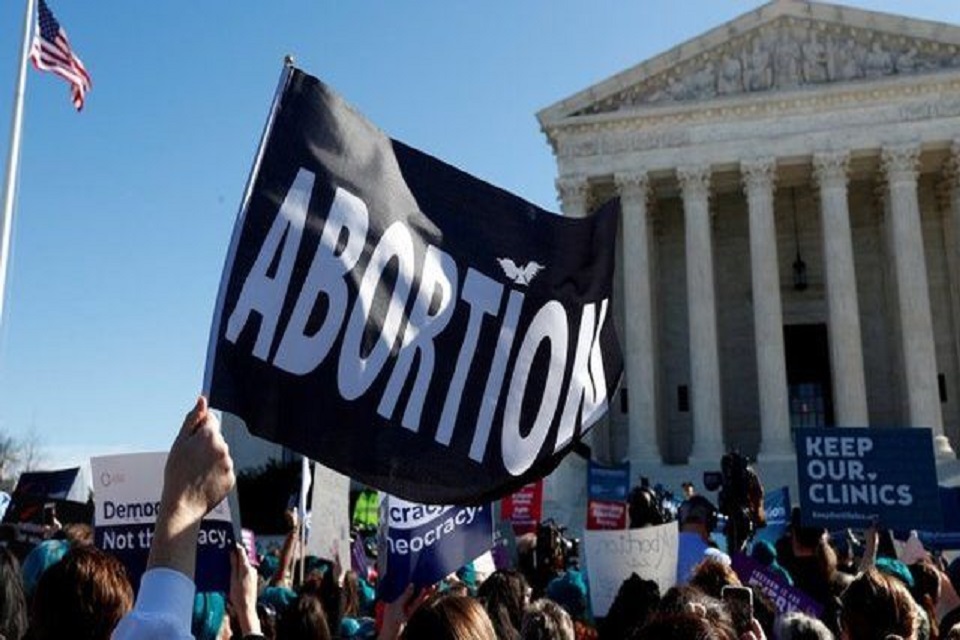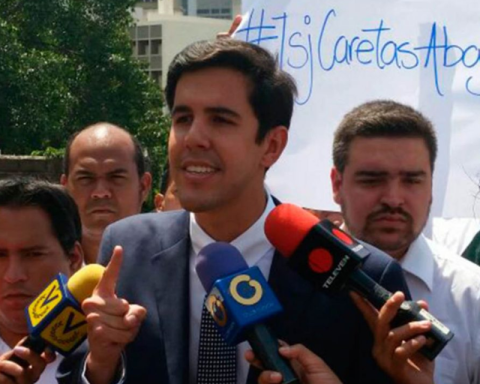After the decision, the opinion of one of the Supreme Court justices is that all the guarantees of rights protected by the 14th amendment that protects the right to privacy be reviewed, among which is the right to contraception and marriage between people of the same sex. President Biden has asked Congress to review the sentence: “this is not over”
The decision of the US Supreme Court, based on a majority of six against three justices, repealed the historic precedent of ‘Roe v. Wade’, the ruling that since 1973 had made the voluntary interruption of pregnancy a constitutional right. Now they will only be protected according to the legislation of each of the 50 states.
The repeal of this ruling in force for almost 50 years is one -within a possible list of revisions- that the highest US court has taken in just one week that shows a regressive profile around the civil rights guarantees that ignite the debate in the American nation.
A historical judgment
The case Roe vs. Wade gave federal status to the freedom of women to terminate pregnancy. Norma McCorvey, who to ensure her anonymity during the controversial trial withheld her name and was portrayed in court papers as Jane Roe, who was suing Dallas County District Attorney Henry Wade. The prosecutor had enforced a Texas state law that prohibited abortion, but he had one exception: if it was to save a woman’s life.
Roe sued before the Supreme Court of the United States and in a decision of seven judges against two, the precedent was marked with the sentence of January 22, 1973 that allowed the legality of the right of a woman to have an abortion under the 14th Amendment to the Constitution: the right to privacy.
This guaranteed the right to abort during the entire pregnancy and defined different levels to regulate the interruption of a pregnancy during the second and third trimesters. By then, the resolution forced the modification of laws in 46 of the 50 states.
With this new ruling that goes back a decision of almost half a century, once again the 50 states have the power to legislate on the subject and there are already at least seven that have clearly expressed from the spokesperson of their legislators that they would be willing to repeal it in the coming weeks or months: Indiana, Ohio, Wisconsin, North Carolina, Georgia, Iowa and Alabama. But the account could increase and take this discussion to the ground in more than half of the country (26 states), in which restrictive laws are already proposed that practically prohibit it, such as the states of Texas and Oklahoma.
Thirteen of those 26 states have prepared texts known as trigger laws (trigger laws), written and pre-approved that could be activated immediately or in the coming days or weeks. Already the attorney general of Missouri, Eric Schmitt, requested to activate a document drafted so that his state would become the first to ban abortion after the Supreme Court ruling was known.
soaking rights
The decision is preceded by a leak that occurred in early May in which a 98-page draft was made public in which the majority opinion of the judges on the subject was collected. Judge Samuel Alito, a member of the most conservative wing, had the support of his colleagues Amy Coney Barrett, Brett Kavanaugh, Clarence Thomas and Neil Gorsuch. Later, the president of the Supreme Court, Judge John Roberts, also joined and expressed that he agreed with the substance, but made the caveat that he would have taken “a more measured option”, which did not involve overturning the 1973 precedent.
In the sentence, of 213 pages, the judges argued that Roe vs. Wade was “eminently wrong, and in open conflict with the Constitution from the moment it was published” and Justice Clarence Thomas explicitly requested in a dissenting opinion that the Supreme Court reconsider other precedents, such as the right to contraception, the one that protects relationships between people of the same sex and homosexual marriage, all sustained in the 14th amendment that protects the right to privacy.
The three justices who voted against the decision were Justices Elena Kagan, Sonia Sotomayor and Justice Stephen Breyer, who will retire soon and be replaced by Justice Ketanji Brown Jackson.
Biden: “This is not over”
The president of the USA Joe Biden said it is a “sad day for the court and for the country.” Biden has asked Congress to restore the right to abortion as federal law in Congress. “This is not over,” he said.
A day earlier, Biden had expressed his disappointment at the ratification of another Supreme Court ruling: the right to bear arms in public, just a month after the mass shooting at the Uvalde elementary school in Texas and the consecutive episodes of violence with firearms in various states.
* Read also: US Supreme Court upheld the right of the population to bear arms in public
This decision has deepened the divisions between Democrats and Republicans, the latter have applauded what they consider an achievement and for which they have expressed the approval of more restrictive laws against abortion. Both parties will try to use abortion as a card before the legislative elections on November 8, in which a third of the Senate and the entire House of Representatives are renewed.
The former first lady, Michelle Obama, also spoke out against the sentence. She posted a statement through her Twitter account in which she expressed that she “was devastated for all the women and people in this country who have lost the fundamental right to make informed decisions regarding their bodies.” .
My thoughts on the Supreme Court’s decision to overturn Roe v. Wade. pic.twitter.com/9ALSbapHDY
—Michelle Obama (@MichelleObama) June 24, 2022
Post Views:
568

















